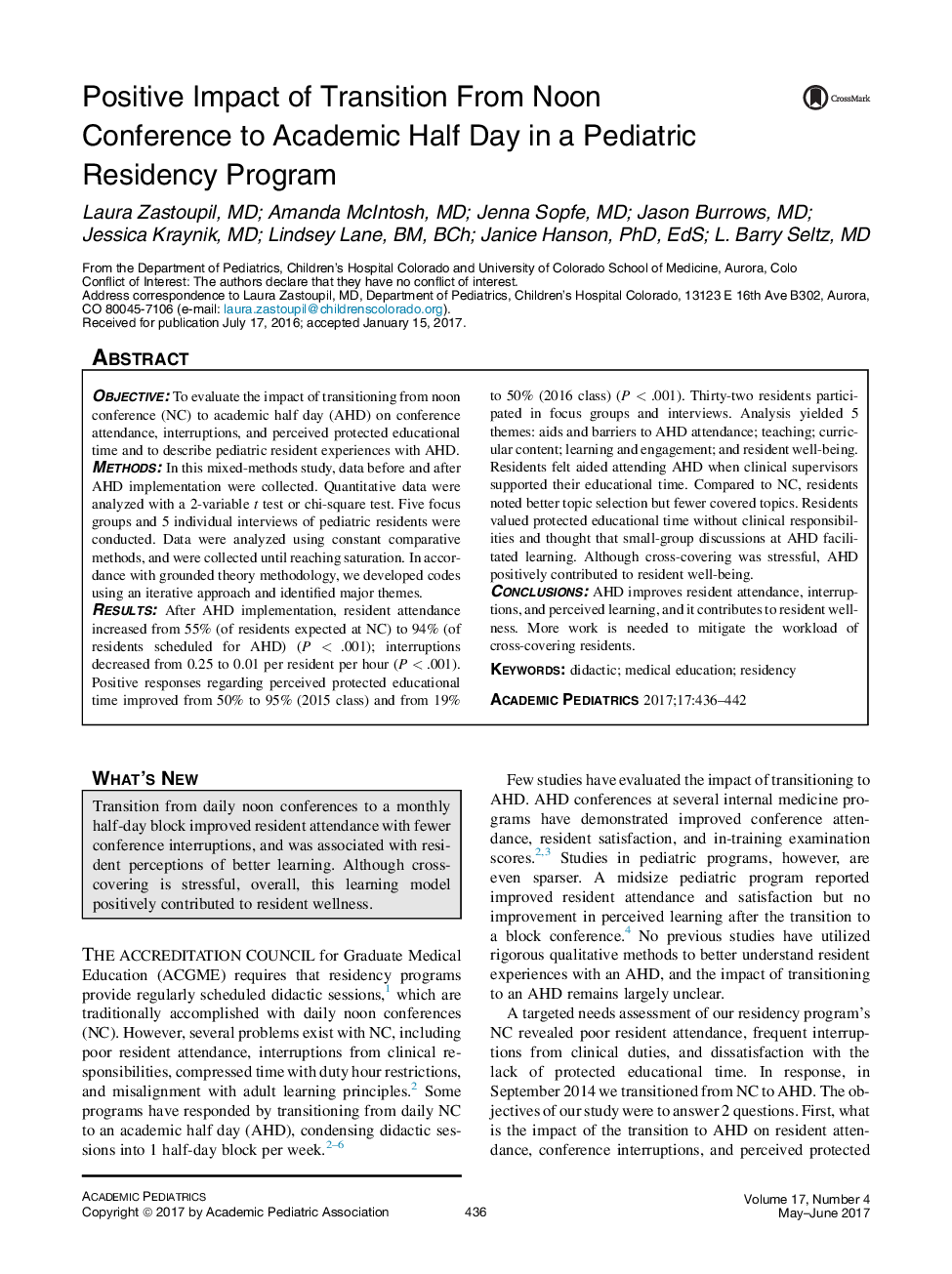| Article ID | Journal | Published Year | Pages | File Type |
|---|---|---|---|---|
| 5716877 | Academic Pediatrics | 2017 | 7 Pages |
ObjectiveTo evaluate the impact of transitioning from noon conference (NC) to academic half day (AHD) on conference attendance, interruptions, and perceived protected educational time and to describe pediatric resident experiences with AHD.MethodsIn this mixed-methods study, data before and after AHD implementation were collected. Quantitative data were analyzed with a 2-variable t test or chi-square test. Five focus groups and 5 individual interviews of pediatric residents were conducted. Data were analyzed using constant comparative methods, and were collected until reaching saturation. In accordance with grounded theory methodology, we developed codes using an iterative approach and identified major themes.ResultsAfter AHD implementation, resident attendance increased from 55% (of residents expected at NC) to 94% (of residents scheduled for AHD) (PÂ <Â .001); interruptions decreased from 0.25 to 0.01 per resident per hour (PÂ <Â .001). Positive responses regarding perceived protected educational time improved from 50% to 95% (2015 class) and from 19% to 50% (2016 class) (PÂ <Â .001). Thirty-two residents participated in focus groups and interviews. Analysis yielded 5 themes: aids and barriers to AHD attendance; teaching; curricular content; learning and engagement; and resident well-being. Residents felt aided attending AHD when clinical supervisors supported their educational time. Compared to NC, residents noted better topic selection but fewer covered topics. Residents valued protected educational time without clinical responsibilities and thought that small-group discussions at AHD facilitated learning. Although cross-covering was stressful, AHD positively contributed to resident well-being.ConclusionsAHD improves resident attendance, interruptions, and perceived learning, and it contributes to resident wellness. More work is needed to mitigate the workload of cross-covering residents.
